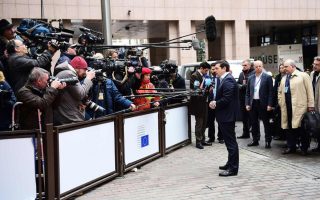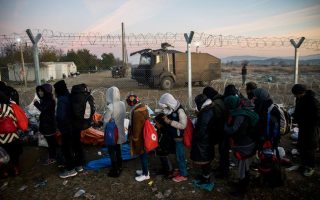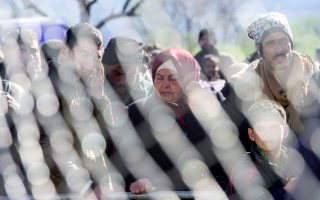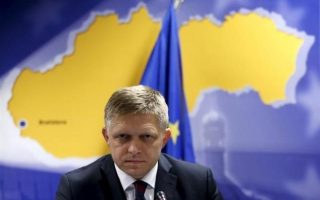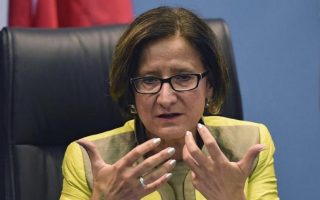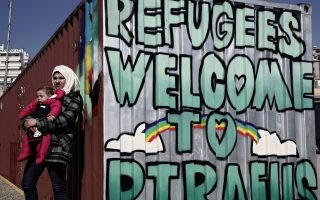EU hopeful Turkey will curb migrant route to Europe
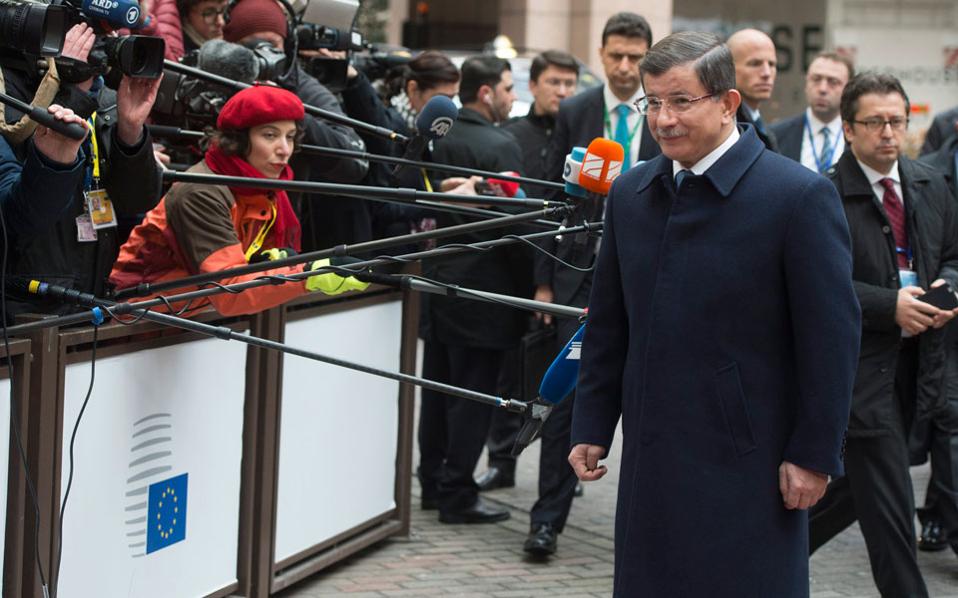
EU leaders voiced guarded optimism before a summit with Turkey on Monday that Ankara was finally ready to act to curb migrants crossing illegally into Europe.
With tens of thousands of migrants stranded in Greece by closing borders, the summit will formally declare closed the Balkan route from Greece to Germany, diplomats said.
Leaders will pledge help to Athens cope with the backlog and seek assurances that Turkey, with NATO naval back-up in the Aegean, will stop people smugglers putting migrants to sea.
"I'm moderately optimistic that we can take such steps today," said Dutch Prime Minister Mark Rutte, whose country currently holds the European Union presidency.
Rutte and German Chancellor Angela Merkel had earlier spent five hours with Turkish Prime Minister Ahmet Davutoglu in Brussels – a meeting that ended at 2.45 a.m. on Monday – to nail down commitments to halt the migrant flow after more than one million people – mostly Syrians, Iraqis and Afghans – entered Europe last year, most ending up in Germany.
Merkel, who faces a possible political backlash against her welcome for the refugees in three regional elections on Sunday, made no comment on arriving for a summit she forced to show voters the EU is acting to resolve the crisis.
The leaders are also likely to tell Davutoglu of their concerns about human rights after the Turkish government seized control of a critical newspaper.
"It's not acceptable. We can't want to get closer to European standards and not respect the pluralism of the media. It's obvious and we've said it clearly to the Turks," French Foreign Minister Jean-Marc Ayrault told France Inter radio.
But EU officials will be careful not to alienate Ankara just as hopes are rising of a solution to the crisis.
Fellow EU leaders, long divided over how to end chaotic movements that have put Europe's Schengen open border system in jeopardy, will also assure Greek Prime Minister Alexis Tsipras of help housing migrants now stranded in Greece.
Tsipras said the bloc must speed up the process of relocating registered asylum seekers from Greece to other EU countries as promised last September. EU states have so far taken in only a few hundred of a promised 160,000 people.
"In Europe we have some principles, some values – one was sharing responsibility, sharing the burden, sharing solidarity," Tsipras said. "Everyone has to implement our common decisions."
An EU endorsement of border closures by Former Yugoslav Republic of Macedonia (FYROM), Austria and other countries on the route north from Greece will be accompanied by a renewed commitment to revive the relocation plan, diplomats said.
A draft EU statement seen by Reuters said: "Irregular flows of migrants along the Western Balkans route are coming to an end; this route is now closed."
Diplomats said the text could still be modified.
NATO said on Sunday a new naval force had approval to operate in Turkish and Greek waters. That will lend force to a deal with Turkey to take back migrants halted in its waters and those who reach Greek islands but do not qualify for asylum.
Amnesty International's deputy director for Europe, Gauri van Gulik, said: "Using Turkey as a 'safe third country' is absurd … Europe has an absolute duty to protect refugees and must make the bold decision to fast-track significant, unconditional resettlement as a matter of urgency."
Germany has been pushing for direct resettlement of thousands of Syrian refugees from the 2.9 million in Turkey. But diplomats say that is unlikely to be discussed in detail by other EU leaders until they see flows from Turkey are falling.
Over a weekend that saw at least another 25 people drown in the straits, Turkish police mounted a raid on a beach opposite Lesvos. Reuters journalists saw them stop some 120 migrants from leaving and arrest at least two from a migrant-smuggling gang.
However, more than 30,000 migrants are bottled up in Greece and about 2,000 more arrive daily.
Greek officials said it was vital that Turkey take back all rejected migrants, as it has begun to do in recent days, that the NATO operation be effective, and that EU partners provide more financial aid to Athens and other affected states.
British Prime Minister David Cameron said he was sending a naval ship and three coastguard boats to the Aegean to join German and Canadian warships in the NATO force assisting the Greek and Turkish navies.
Though Britain is outside the Schengen zone, EU leaders have warned that further migrant chaos in Europe could damage Cameron's efforts to win a June referendum and keep Britain in the EU.
EU officials believe that once they see Europe's external border in Greece is being brought under control even previously reluctant member states will be willing to admit their quota of refugees.
Three months ago, EU leaders agreed to provide 3 billion euros ($3.3 billion) to help care for Syrian refugees in Turkey. They also promised to revive talks on Ankara's EU membership and speed up a plan to give Turks easier visa access to the EU.
The EU announced the first aid disbursements from the fund last week for humanitarian relief and education.
[Reuters]
